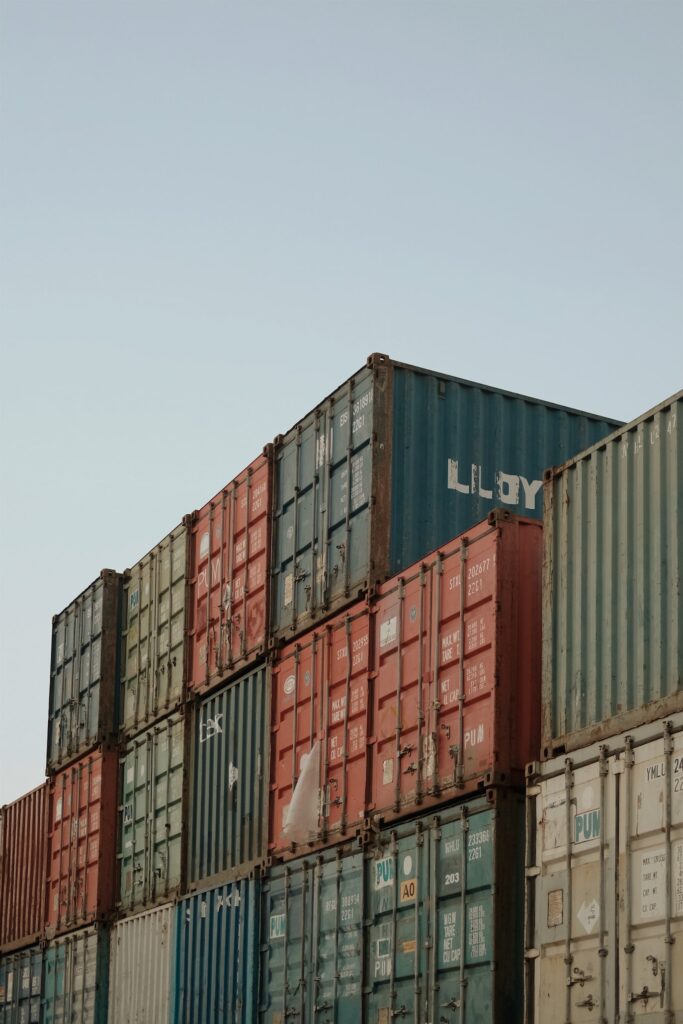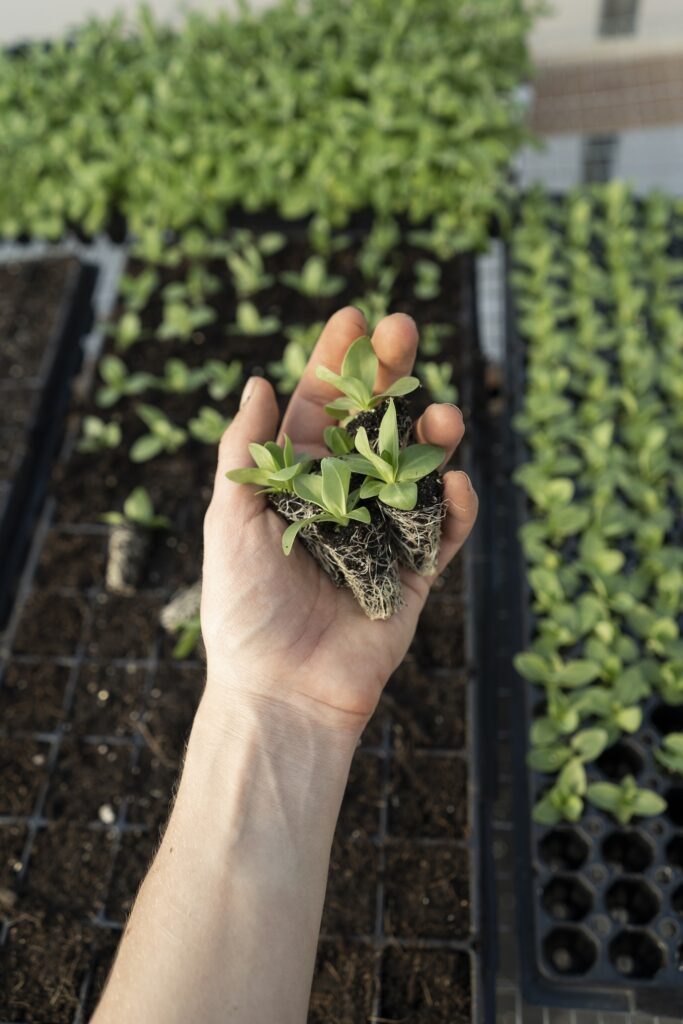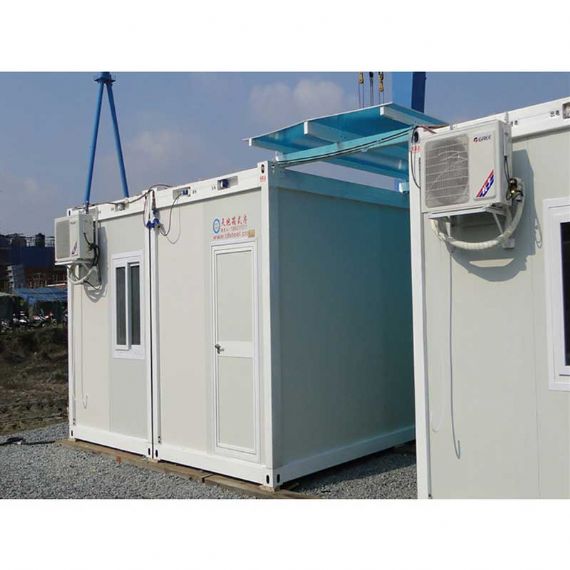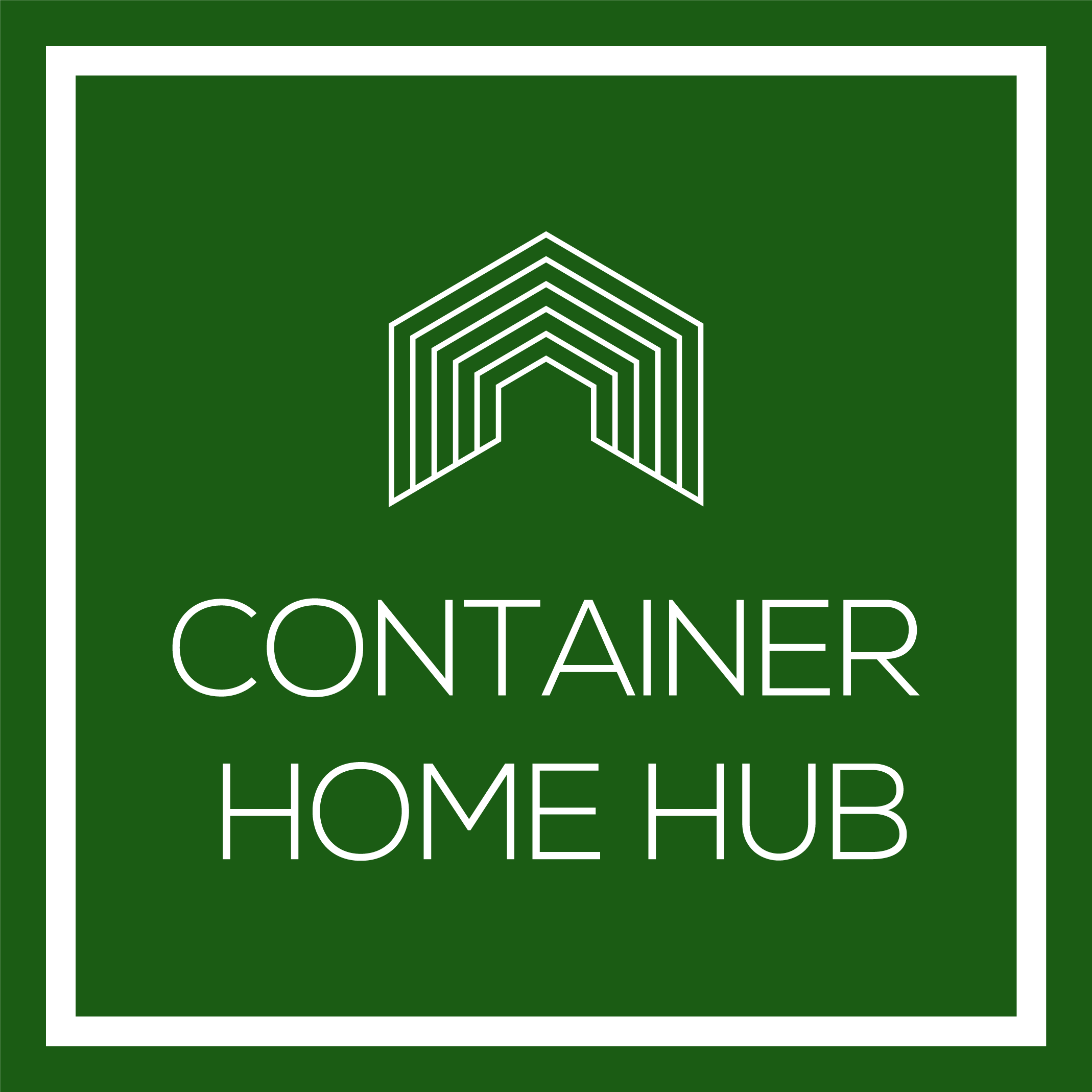The shipping container farm concept is just one of many business ideas around shipping containers that are gaining popularity in the world.
It is especially gaining popularity with controlled environment agriculture due to their compact size and controlled environment.
These innovative farms provide the perfect solution for those interested in sustainable farming practices, allowing them to grow their own produce at home.
In this article, we’ll explore shipping container farms and their growing popularity in controlled environment agriculture.
We’ll also discuss the advantages of container farming, the practicality and efficiency of building a shipping container farm, how shipping containers are revolutionizing indoor farming, and the concept of controlled environment agriculture.
If you’re interested in sustainable farming, reducing water consumption, or contributing to a more sustainable future, shipping container farms offer an exciting option.
So why not put on your green thumb and join the revolution?
Key Takeaways
- Container farming is an accessible and sustainable way of growing fresh produce in your own backyard.
- It offers many advantages, such as year-round production, minimal water usage, and reduced environmental impact. With the right materials and techniques, you can easily create a thriving garden.
- Building a shipping container farm is a practical and efficient solution to growing crops in a controlled environment.
- It is an ideal choice for those with a green thumb who are looking for a sustainable way to produce their own food. It is also a cost-effective way to grow produce.
- Setting up a container farm is relatively straightforward. All you need is the right materials and a good plan. Once in place, you can start growing your own fresh vegetables and fruits.
Container farming is an incredibly rewarding experience. It allows you to enjoy the fruits of your labor while reducing your environmental footprint. Investing in a shipping container farm is a unique and sustainable way to grow your own food.
For a video reference, you can check what a container farm is like here:
We Toured A Shipping Container Farm | See What It’s Really Like to Work Inside

Why Shipping Container Farms?
Shipping container farms are innovative agricultural systems that aim to address widespread challenges in modern farming.
These farms are essentially fully functioning farms that have been ingeniously compacted and fitted into shipping containers.
This allows for cultivation in any location, whether it’s an urban setting with limited space or a remote area with harsh environmental conditions.
Shipping container farms offer a practical and cost-effective solution for many researchers and companies that need an enclosed ecosystem.
Here are a few benefits of using shipping container farms:
Modularity
Container farms have a modular design, allowing for quick and easy relocation. This means that you can move your indoor farm from one location to another with minimal effort.
Additionally, container farms can be stacked to maximize space utilization and enable vertical farming. They can also be combined with regular shipping containers to create an integrated system for equipment storage and farming operations.
The scalability of container farms is unparalleled. You can start small and gradually expand as needed. This modular approach allows you to transform your space into an efficient and sustainable green thumb paradise.
No matter where you are, container farms offer a convenient and efficient way to grow your own food. They are a great solution for those looking to create a green oasis in even the most constrained of spaces.
Size
Shipping containers have become a revolutionary solution for sustainable agriculture. Their size makes them the perfect choice for creating a highly efficient indoor farming system.
The containers are stackable, allowing for the utilization of vertical space, and can be placed anywhere, from rooftops to backyards.
A single container can accommodate multiple levels of vertical farming, and can be used to grow a variety of crops, from leafy greens to herbs and even small fruits.
The container’s self-contained environment allows for the control of temperature, humidity, and lighting, creating optimal growing conditions.
Shipping container farming not only offers an efficient solution for agricultural production, but also has the potential to support hundreds of people’s food needs in just one container.
This innovative approach to sustainable agriculture can revolutionize food production, making it more accessible and economically viable.
Commoditization
Container farming utilizes unused spaces such as parking lots and rooftops to maximize land use efficiency. It also allows for year-round food production, reducing dependence on seasonal crops.
Additionally, hydroponic systems used in these farms require less water compared to traditional soil-based methods.
The commoditization of containers also makes it easy and cost-effective to expand container farming operations.
This widespread availability and affordability of used and new containers ensures that this method can be easily implemented in various locations.
By bringing fresh produce closer to local communities, container farming reduces transportation emissions and supports sustainable agriculture. It is an attractive option for individuals and communities looking to support local agriculture efforts.

Shipping Containers In Controlled Environment Agriculture
Shipping containers are revolutionizing the farming industry by providing an innovative solution for indoor growing. Controlled environment agriculture (CEA) is a sustainable approach that uses shipping containers to maximize space utilization and reduce water usage.
These containers offer a controlled environment, similar to that of a greenhouse, so farmers can grow crops year-round regardless of external weather conditions.
The use of shipping containers in CEA is incredibly beneficial for farmers and the environment alike, allowing for efficient resource management and sustainable practices.
With CEA, you can step into a shipping container and experience the wonders of farming firsthand.

Controlled Environment Agriculture Inputs
Controlled Environment Agriculture (CEA) offers the perfect solution for indoor gardeners looking to take control of their crops.
Tightly managing the key inputs of temperature, humidity, carbon dioxide (CO2), light, and nutrients can achieve optimal growth and productivity.
Maintaining the right temperature and humidity level can help plants reach their full potential. CO2 and light, when provided through artificial sources such as LEDs, can help encourage successful photosynthesis.
Additionally, the composition, concentration, and pH of the nutrients delivered to the crops are all factors that need to be closely monitored in order to ensure your plants are receiving all the elements they need for growth.
CEA technology has revolutionized the way we grow food. With less water needed year-round and no pesticides, it is now possible to produce various leafy greens in any environment.
Types of Controlled Environment Agriculture
There are several types of CEA. Hydroponics uses nutrient-filled water to suspend plant roots, while aeroponics sprays plants with a fine mist of water.
Aquaculture is a method for farming aquatic plants and animals in controlled conditions. Aquaponics combines hydroponics and aquaculture, creating a mini-ecosystem where fish excretions become plant nutrients.
A vertical farming system is an efficient way to produce crops in vertically stacked layers.
Urban farming reduces food deserts by making farming more accessible to urban dwellers. Additionally, sustainable agriculture practices prioritize resource conservation. Cyber agriculture uses advanced technology such as AI and machine learning to optimize plant growth outcomes.
Container farms provide a convenient way to harvest fresh produce year-round. This is especially beneficial in urban areas, where fresh produce is not always available.
CEA is a modern way to do agriculture with many different methods and applications. With this technology, sustainable and efficient farming is possible.
Container Farming
Container farming is a complex yet rewarding business endeavor. It requires careful consideration of economic viability, daily operational decisions, and potential pitfalls.
With container farms, farmers are able to cultivate crops in controlled, often automated environments. However, this comes with its own set of challenges.
Farmers must carefully select the crops they grow, as well as effectively market and price their produce. They must also manage the small day-to-day decisions that are integral to the success of a container farm.
This includes the costs associated with the farm, such as the acquisition costs of the containers, equipment, and seeds; as well as operational costs such as fertilizers, water, packaging, advertising, energy, and labor (which are usually the largest).
Being mindful of these various factors can increase their chances of success in the container farming industry.
These operations are often used to provide locally sourced, fresh produce to communities. This adds to the appeal of container farming, as it allows farmers to make a positive contribution to their local food system.
Building Your Own Container Farming System
If you’re thinking about building your own container farm, there are a few key points to keep in mind.
Basic Set Ups
Setting up a shipping container farm doesn’t have to be complicated. All you need are the right components to create an efficient growing environment.
The first thing to consider is the growing chambers. These provide the necessary space to cultivate plants indoors and are essential for a successful crop.
Next, you’ll need an irrigation system with a pump and nutrient bins. This ensures that plants receive the water and nutrients they need.
LED lights are also important for replicating sunlight in the container. To maintain the right temperature, insulation and ventilation are necessary in the atmospheric system.
Finally, sensors and controls are essential for monitoring humidity, temperature, alkalinity, and light levels.
Utilizing these basic setups can produce high-quality crops year-round while saving on freight costs. Plus, harvesting and packaging can be done conveniently inside the container farm.
Can You Make A Container Farm In Your Backyard?
Container farming is becoming an increasingly popular solution for both urban and rural farmers. It’s a cost-effective and innovative way to grow a variety of crops without the need for large plots of land.
Whether you’re an experienced farmer or just starting out, container farming provides an opportunity to become a successful grower.
Advanced technology is used to monitor and control the environment inside the containers. This ensures ideal conditions for growing crops, maximizing yield and quality.
As your business grows, it’s easy to expand by adding more containers to increase production.
Container farming is an exciting and sustainable way to grow food right in the comfort of your own backyard.
It’s a great option for anyone looking to cultivate their own fresh produce without dedicating too much space. So why not give it a try?

Frequently Asked Questions
What can I grow in a shipping container farm?
You can grow a variety of crops in a shipping container farm, including microgreens and other leafy greens. The farms are suitable for both personal and commercial use, making them a viable business opportunity.
How much water does a shipping container farm use per day?
A shipping container farm uses less water compared to traditional farming methods. The exact amount of water used per day depends on the size of the farm and the crops being grown.
Do shipping container farms require the use of pesticides?
Shipping container farms are designed to minimize the need for pesticides. The controlled environment and purpose-built growing systems reduce the risk of pests and diseases, resulting in healthier crops without the need for harmful chemicals.
Can I grow food year-round in a shipping container farm?
Yes, shipping container farms allow for year-round food production. The controlled environmental conditions inside the container enable crops to be grown regardless of external weather conditions.
How wide, long, and tall are the shipping container farms?
The dimensions of shipping container farms vary, but they are typically wide x feet, long x feet, and tall x feet. These dimensions can be adjusted based on the specific requirements of the farmer.
What does it mean for a shipping container farm to be turnkey?
When a shipping container farm is turnkey, it means that it comes fully equipped with all the necessary components for farming. This includes the hydroponic system, lighting, climate control, and automation features.

